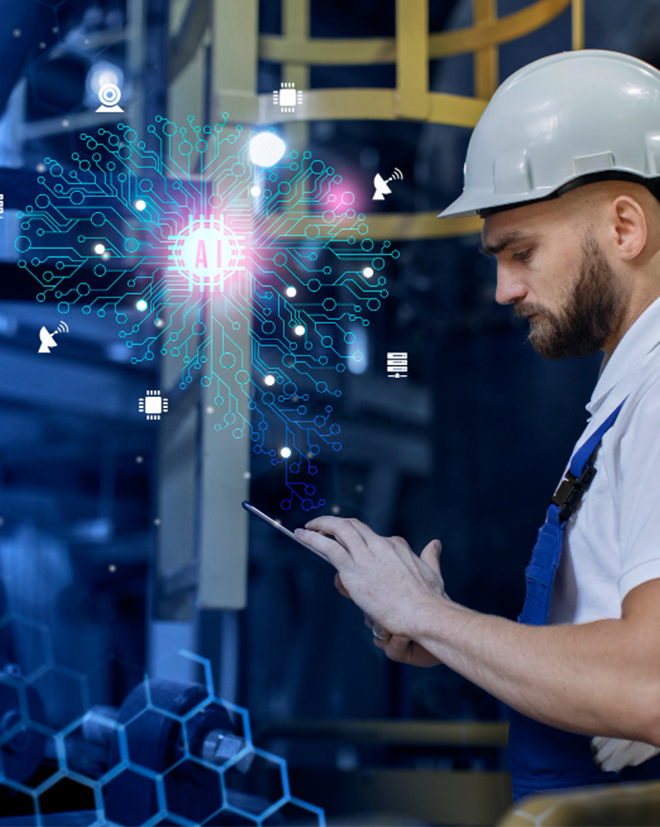Blockchain is the term used to describe how decentralized ledger technology is being applied to several facets of the automotive industry.
The technology improves operations’ efficiency, security, and transparency by safely recording and verifying transactions among a network of participants.
Supply chain management, where blockchain can monitor and validate each transaction; vehicle authentication by building a digital twin; and contract and transaction facilitation through smart contracts are some of the key applications.
As a result, the operational process is more efficient and safer, enhancing consumer confidence, data security, and the automobile industry’s general efficiency.
Blockchain technology, for all its complexity, is a game-changer in the digital transformation of the automotive industry.
How does blockchain work in the automotive industry?
The foundation of blockchain technology is distributed ledger technology, or DLT. Across a network of computers known as nodes, it provides an unchangeable and visible ledger.
DLT ensures component authenticity and guards against counterfeiting in the automotive industry by enabling secure tracking of vehicle parts.
Smart contracts are self-executing contracts with conditions explicitly encoded into code, which makes them a special kind of blockchain technology.
Smart contracts reduce the need for middlemen and associated expenses in automotive transactions by automating procedures including insurance, sales, and car leasing.
Key Players in Blockchain Applications in the Automotive Industry
Major Automotive Companies: Leading automakers, including Ford, Renault, and BMW, are investigating blockchain applications to improve their business processes.
These businesses have employed blockchain for a variety of use cases, such as automated car payments and supply chain transparency.
Innovative Startups: New uses of blockchain in the automobile industry are being introduced by startups, which are also spearheading innovation in the field.
While some companies, like CarVertical, are concentrating on vehicle history reporting utilizing blockchain technology, others, like FOAM, are developing spatial protocols for autonomous automobiles.
Impact of Blockchain on Automotive Business Models
Potential Shifts in the Value Chain: The car industry’s value chain could be severely disrupted by blockchain technology. It might do away with middlemen by facilitating direct communication between producers and consumers. Peer-to-peer car sharing and leasing are two examples of new business models that it can inspire.
Changing Customer Relationships and Services: Blockchain has the potential to completely change the dynamic between car manufacturers and their customers by fostering greater trust and openness. It enhances already-existing services like leasing and insurance while opening up new ones like vehicle history verification.
New Revenue Streams and Cost Structures: Blockchain makes it possible for automakers to create new business models, which can open up new revenue sources. Furthermore, it might result in cost savings through the automation of several procedures.
Benefits of Blockc hain in the Automotive Industry
hain in the Automotive Industry
Enhanced Supply Chain Transparency: Supply chain transparency has never been possible before thanks to blockchain technology. From the point of raw materials to the finished product, every component’s travel may be tracked, lowering the possibility of fake components getting into the supply chain and enhancing quality control.
Streamlined Automotive Transactions: Smart contracts in blockchain technology automate transactions, making them more straightforward and efficient. It lowers transaction costs, gets rid of middlemen, and speeds up settlement times.
Improved Vehicle Data Security and Authenticity: Blockchain technology guarantees the confidentiality and validity of vehicle data through an unchangeable, secure ledger. In addition to providing a dependable platform for data sharing among trusted parties, it also guards against data breaches.
Increased Customer Trust and Interaction: Through transparency, blockchain technology improves customer trust. Customers are more confident in their purchases when they can confirm a vehicle’s history and authenticity.
In addition, it makes safe consumer communication possible, supporting businesses like car rentals, ride-sharing, and pay-per-use insurance.
Conclusion
Blockchain technology can improve efficiency, security, and transparency, which might completely change the automobile sector.
When integrating blockchain technology in the automobile industry, it is crucial to take the regulatory landscape, collaboration networks, and understanding of the blockchain ecosystem into account.

